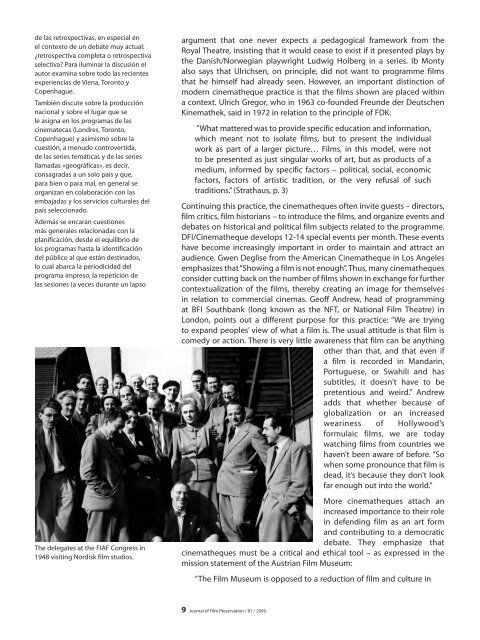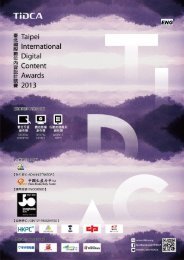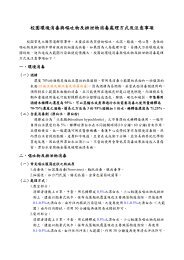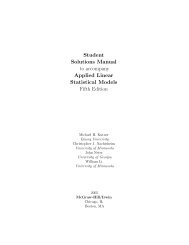Journal of Film Preservation - FIAF
Journal of Film Preservation - FIAF
Journal of Film Preservation - FIAF
Create successful ePaper yourself
Turn your PDF publications into a flip-book with our unique Google optimized e-Paper software.
de las retrospectivas, en especial en<br />
el contexto de un debate muy actual:<br />
¿retrospectiva completa o retrospectiva<br />
selectiva? Para iluminar la discusión el<br />
autor examina sobre todo las recientes<br />
experiencias de Viena, Toronto y<br />
Copenhague.<br />
También discute sobre la producción<br />
nacional y sobre el lugar que se<br />
le asigna en los programas de las<br />
cinematecas (Londres, Toronto,<br />
Copenhague) y asimismo sobre la<br />
cuestión, a menudo controvertida,<br />
de las series temáticas y de las series<br />
llamadas «geográficas», es decir,<br />
consagradas a un solo país y que,<br />
para bien o para mal, en general se<br />
organizan en colaboración con las<br />
embajadas y los servicios culturales del<br />
país seleccionado.<br />
Además se encaran cuestiones<br />
más generales relacionadas con la<br />
planificación, desde el equilibrio de<br />
los programas hasta la identificación<br />
del público al que están destinados,<br />
lo cual abarca la periodicidad del<br />
programa impreso, la repetición de<br />
las sesiones (a veces durante un lapso<br />
The delegates at the <strong>FIAF</strong> Congress in<br />
1948 visiting Nordisk film studios.<br />
argument that one never expects a pedagogical framework from the<br />
Royal Theatre, insisting that it would cease to exist if it presented plays by<br />
the Danish/Norwegian playwright Ludwig Holberg in a series. Ib Monty<br />
also says that Ulrichsen, on principle, did not want to programme films<br />
that he himself had already seen. However, an important distinction <strong>of</strong><br />
modern cinematheque practice is that the films shown are placed within<br />
a context. Ulrich Gregor, who in 1963 co-founded Freunde der Deutschen<br />
Kinemathek, said in 1972 in relation to the principle <strong>of</strong> FDK:<br />
”What mattered was to provide specific education and information,<br />
which meant not to isolate films, but to present the individual<br />
work as part <strong>of</strong> a larger picture… <strong>Film</strong>s, in this model, were not<br />
to be presented as just singular works <strong>of</strong> art, but as products <strong>of</strong> a<br />
medium, informed by specific factors – political, social, economic<br />
factors, factors <strong>of</strong> artistic tradition, or the very refusal <strong>of</strong> such<br />
traditions.” (Strathaus, p. 3)<br />
Continuing this practice, the cinematheques <strong>of</strong>ten invite guests – directors,<br />
film critics, film historians – to introduce the films, and organize events and<br />
debates on historical and political film subjects related to the programme.<br />
DFI/Cinematheque develops 12-14 special events per month. These events<br />
have become increasingly important in order to maintain and attract an<br />
audience. Gwen Deglise from the American Cinematheque in Los Angeles<br />
emphasizes that “Showing a film is not enough”. Thus, many cinematheques<br />
consider cutting back on the number <strong>of</strong> films shown in exchange for further<br />
contextualization <strong>of</strong> the films, thereby creating an image for themselves<br />
in relation to commercial cinemas. Ge<strong>of</strong>f Andrew, head <strong>of</strong> programming<br />
at BFI Southbank (long known as the NFT, or National <strong>Film</strong> Theatre) in<br />
London, points out a different purpose for this practice: “We are trying<br />
to expand peoples’ view <strong>of</strong> what a film is. The usual attitude is that film is<br />
comedy or action. There is very little awareness that film can be anything<br />
other than that, and that even if<br />
a film is recorded in Mandarin,<br />
Portuguese, or Swahili and has<br />
subtitles, it doesn’t have to be<br />
pretentious and weird.” Andrew<br />
adds that whether because <strong>of</strong><br />
globalization or an increased<br />
weariness <strong>of</strong> Hollywood’s<br />
formulaic films, we are today<br />
watching films from countries we<br />
haven’t been aware <strong>of</strong> before. “So<br />
when some pronounce that film is<br />
dead, it’s because they don’t look<br />
far enough out into the world.”<br />
More cinematheques attach an<br />
increased importance to their role<br />
in defending film as an art form<br />
and contributing to a democratic<br />
debate. They emphasize that<br />
cinematheques must be a critical and ethical tool – as expressed in the<br />
mission statement <strong>of</strong> the Austrian <strong>Film</strong> Museum:<br />
”The <strong>Film</strong> Museum is opposed to a reduction <strong>of</strong> film and culture in<br />
9 <strong>Journal</strong> <strong>of</strong> <strong>Film</strong> <strong>Preservation</strong> / 81 / 2009
















